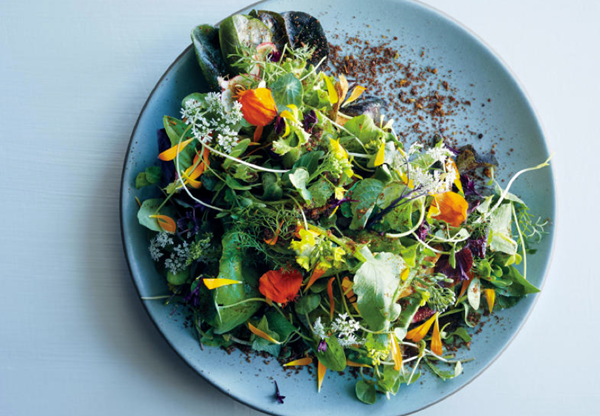In the bag: how packaged salad took over the supermarket
August 26, 2023 by DarcieIf you time-traveled back to the 1970s and told the average supermarket shopper that 50 years hence there would be entire supermarket aisles devoted to bagged salad greens and kits, and that twenty percent of all vegetable sales would be spent on salads, you would probably be met with skepticism. At that time you would have been hard pressed to find anything more than whole heads of iceberg, romaine or green leaf lettuce on store shelves. Today, however, we have just what was described above. How did we get here? Epicurious’ Margaret Watterbury explains how bagged salad mix took over the produce section.

Watterbury links the rise of bagged salad with the locavore movement spearheaded by Alice Waters and other chefs who touted sourcing produce close to home. The first salad mixes were definitely more inspired than the ubiquitous bags of spring mix that dominate store shelves today. Growers would choose an assortment of greens, herbs, and flowers to curate what Watterbury describes as a “handmade collages of botanical treasures. But the allure of baby lettuces was too strong for commercial growers to resist. Once they figured out that they could turn over crops twice as fast by picking immature lettuce, that’s what became the dominant variety.
Bagged salad might seem like a straightforward product, but as the article explains, there is a lot of science that goes into the packaging. Every type of green has different storage needs, which has led to numerous types of plastics being used. While the packages look like plain plastic bags, some have properties such as pores that contract or expand based on temperature, and scientists are working on plastics that are activated by light or moisture or that automatically release gases to keep the produce fresh. All of that technology makes a $3 bag of salad more impressive.
While purists may scoff at a prepackaged salad mix and prefer to put together their own blend and make their own dressing from scratch, you shouldn’t feel bad about grabbing a bagged salad for your family’s dinner, especially if it means the difference between having a vegetable or not. Says chef and cookbook author Abra Berens: “Don’t let perfect be the enemy of the good,” said Berens. “There’s such a stigma around eating vegetables. People are time strapped, and so if it makes it possible, then that is really important.”
Categories
- All Posts (6940)
- Antipasto (2135)
- Author Articles (247)
- Book News (935)
- Cookbook Giveaways (983)
- Cookbook Lovers (257)
- Cooking Tips (109)
- Culinary News (299)
- Food Biz People (552)
- Food Online (791)
- Holidays & Celebrations (272)
- New Cookbooks (149)
- Recipes (1500)
- Shelf Life With Susie (231)
- What's New on EYB (133)
Archives
Latest Comments
- kmwyman on Rooza by Nadiya Hussain – Cookbook Review and Giveaway
- Maryd8822 on The Golden Wok – Cookbook Giveaway
- Dendav on Danube Cookbook Review and Giveaway
- sanfrannative on Rooza by Nadiya Hussain – Cookbook Review and Giveaway
- darty on Danube Cookbook Review and Giveaway
- Atroyer7 on Danube Cookbook Review and Giveaway
- demomcook on What foods do you look forward to the most for each season?
- demomcook on Danube Cookbook Review and Giveaway
- Darcie on How cookbooks can help build resilience
- mholson3 on Danube Cookbook Review and Giveaway